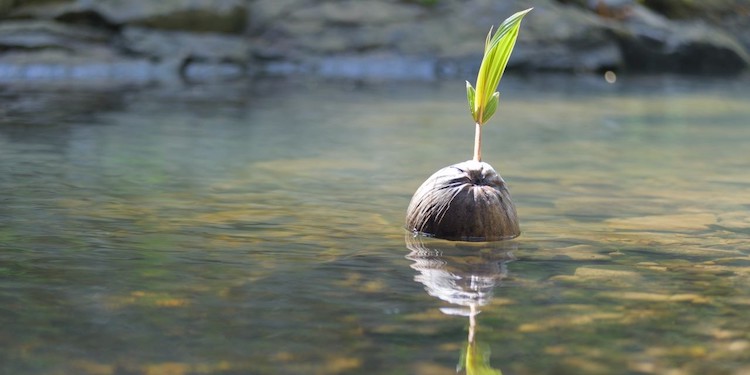By Tafue Lusama*
This article was issued by the Toda Peace Institute and is being republished with their permission.
SUVA, Fiji, 25 April 2023 (IDN) — The global climate narrative has been largely shaped by Eurocentric philosophies, frameworks, and concepts. In most cases, adaptation and mitigation measures are formulated outside of the Pacific region, trialed, and then implemented in the Pacific with the assumption that they are the best solution for the Pacific Island countries, without considering the indigenous knowledges that do exist at the grassroots.
An example of this approach is the type of seawalls that were introduced to countries like Kiribati and Tuvalu—those seawalls failed, simply because they were, and are, too expensive, and materials are brought from outside the country.
In contrast to the dominant Eurocentric point of view, Pacific Theological College (PTC) has established the ‘Institute for Climate Indigenous Knowledge’ (ICIK) as an attempt to employ the philosophies, frameworks, and concepts of Pacific indigenous communities to understand climate change in a Pacific context. At the same time, it aims to educate our younger generations to look inward (to their philosophies, spiritualities, and worldviews) rather than outward (foreign philosophies and theologies) for solutions to climate change.
Pacific Indigenous peoples, like any indigenous community around the world, have sustained and survived for centuries using their own philosophies and spiritualities, without dependence on foreign philosophies. They have survived many ecological challenges using their indigenous scientific knowledge. Indigenous knowledge gives rise to a diversity of technologies such as hunting, fishing, plant cultivation, navigation, architecture, art, and healing. Since it generally incorporates holistic values, it raises opportunities to consider the long-term costs and benefits of actions that may affect the environment.
It is within this Pasifika relationality that ICIK locates itself as an institution that:
- focuses on the development of a new ‘Whole of Life’ Pasifika climate consciousness;
- develops ‘Whole of Life’ research on climate indigenous knowledge and resilience of the Pasifika communities;
- is influential in translating the living indigenous and spiritual climate traditions of the Pasifika communities into climate policies;
- develops educational training, publications, and conferences shaped by life-affirming faith and indigenous knowledge;
- empowers young indigenous climate activists to develop climate justice approaches that are community-based;
- engages in meaningful partnerships and in relationship building with national, regional and international climate partners.
By pursuing these aims, ICIK will contribute to the recognition of indigenous climate knowledge and understanding in the formulation of frameworks for any climate mitigation and adaptation initiatives and measures. ICIK will carry out research on communities’ indigenous climate knowledge; it will conduct seminars and workshops that are critical in verifying the findings of the research by indigenous experts from the region; it will organise conferences where the findings will be shared and made public; and it will publish materials with recommendations for policy makers around the region.
What is missing from the current hegemonic climate narrative is indigenous climate knowledge and understanding. It is critical to start a process through which it will not only be incorporated into that narrative, but will also meaningfully impact national, regional, and international climate policies. Local indigenous communities will become participants in the global climate discourse, and more importantly in the formulation of solutions that are rooted in their own indigenous climate knowledge.
The “whole of life” vision of the Pacific Theological College (PTC) aims to create transformative programmes that are communities-based and communities-informed, grounded in the ecological knowledge, faith, and spiritualities of grassroots communities. This vision assists in framing home-grown sustainable Pasifika ways of knowing and being, informed by life-affirming philosophies, values, and best practices, putting the “whole of life” at the heart of theology, education, development, and church mission. It is a vision that aims to provide an alternative to destructive colonial ideological promises that have shaped development in the Pasifika communities for centuries.
While the current focus of Pasifika renewed development strategies is to acknowledge the significance of “cultures and peoples” for development, this is not enough until we put communities and their knowledge systems at the heart. The shift that comes with the ‘whole of life’ approach aims to assist churches, governments, and the wider Pacific communities to nurture transformative change through revisiting and deconstructing existing ideological and philosophical foundations of development that have contributed to the destruction of the Pasifika household of God and its “whole of life” structure.
This transformation includes charting a new consciousness and a liberative course that establishes practical, affordable, and sustainable methods and approaches to assist Pasifika people to be better stewards and custodians of the environment and to safeguard and protect our shared Pasifika heritage. [IDN-InDepthNews]
Related articles:
Atoll futures – Defining habitability (5-minute read)
Habitabilty and relational security (5-minute read)
Why Pacific Islanders are stying put even as rising seas flood their homes and crops (5-minute read)
*Rev. Dr. Tafue M Lusama is Climate Change Officer at the Pacific Theological College in Suva, Fiji. He is an ordained Minister of the Ekalesia Kelisiano Tuvalu. [IDN-InDepthNews]
Image: Lano Lan/Shutterstock
Original link: https://toda.org/global-outlook/global-outlook/2023/the-missing-link-indigenous-pasifika-climate-knowledge.html
IDN is the flagship agency of the Non-profit International Press Syndicate.
Visit us on Facebook and Twitter.
We believe in the free flow of information. Republish our articles for free, online or in print, under Creative Commons Attribution 4.0 International, except for articles that are republished with permission.

